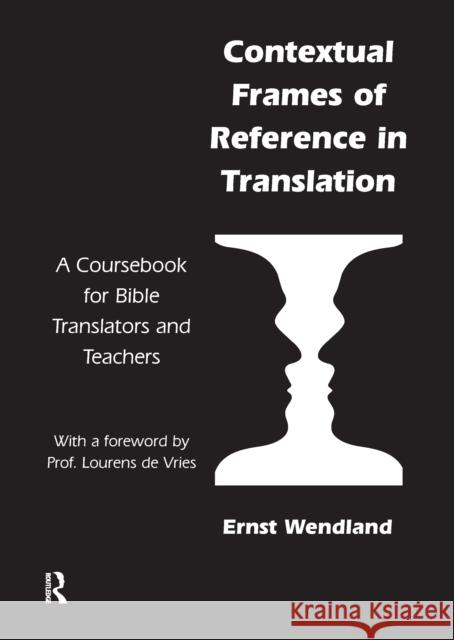Contextual Frames of Reference in Translation: A Coursebook for Bible Translators and Teachers » książka
Contextual Frames of Reference in Translation: A Coursebook for Bible Translators and Teachers
ISBN-13: 9781138157149 / Angielski / Twarda / 2017 / 18 str.
Contextual Frames of Reference in Translation: A Coursebook for Bible Translators and Teachers
ISBN-13: 9781138157149 / Angielski / Twarda / 2017 / 18 str.
(netto: 672,22 VAT: 5%)
Najniższa cena z 30 dni: 654,86
ok. 22 dni roboczych.
Darmowa dostawa!
Bible translation theory and practice rightly tend to focus on the actual text of Scripture. But many diverse, yet interrelated contextual factors also play an important part in the implementation of a successful translation program. The aim of this coursebook is to explore, in varying degrees of detail, a wide range of these crucial situational variables and potential influences, using a multidisciplinary approach to the task. Thus, in order to expand and enrich the field of vision, a progressive study of this complex process of intercultural, interlinguistic communication is carried out according to a set of overlapping sociocultural, organizational and situational cognitive orientations. These contextual factors provide a broader frame of reference for analyzing, interpreting and communicating the original Scriptures in a completely new, contemporary setting of transmission and reception. The three dimensions are then applied in a practical way to explore the dramatic "throne-room" vision of the Apostle John (Revelation 4-5) with reference to both the original Greek text and also a modern dynamic translation in Chewa, a southeastern Bantu language of Africa. A variety of exercises and assignments to stimulate critical and creative reflection as well as to illustrate the theoretical development of Contextual Frames of Reference is provided every step of the way. Not only is translation per se discussed, but the teaching and evaluation of translated texts and versions are also considered from several points of view in the final three chapters. An Appendix offers a foundational essay by Professor Lourens de Vries on the subject of primary orality and the influence of this vital factor in the crosscultural communication of the Bible.











